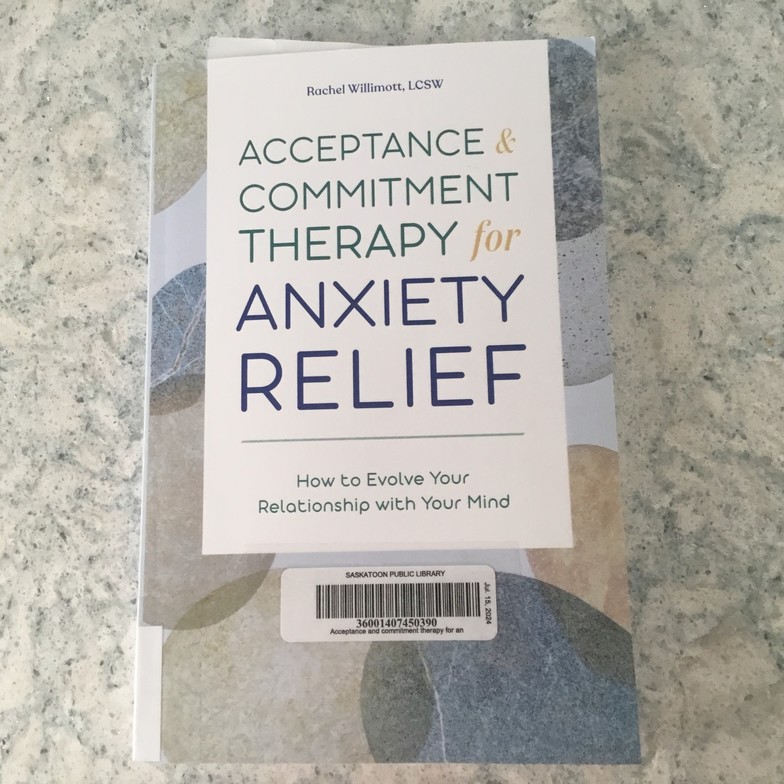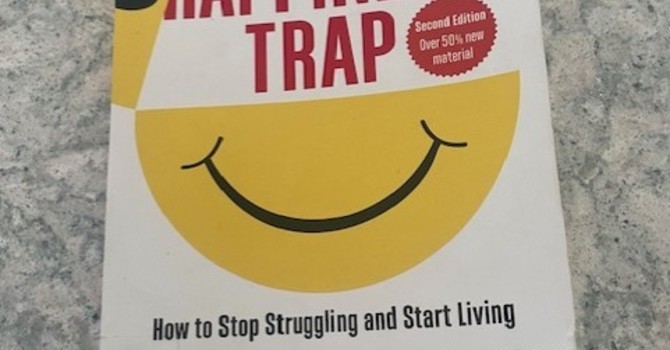
In my recent blog posts, I’ve reviewed several books on Acceptance & Commitment Therapy (ACT). While I found some aspects helpful, I still have questions about ACT’s effectiveness in treating anxiety. Although I don’t use ACT in my practice, I was curious about its potential as an alternative to Cognitive Behavioral Therapy (CBT). This book made me reconsider ACT’s value, as certain parts resonated with me and suggested it could be beneficial for some individuals.
“Acceptance and Commitment Therapy for Anxiety Relief: How to Evolve Your Relationship with Your Mind” by Rachel Willimott is an accessible and practical guide that introduces the core principles of Acceptance and Commitment Therapy (ACT) to help individuals manage anxiety. The book is designed for readers who may be unfamiliar with therapeutic techniques but are seeking a compassionate and effective approach to anxiety relief.
Willimott effectively breaks down the often-complex concepts of ACT, making them understandable and actionable. The core of ACT focuses on accepting negative emotions rather than avoiding them and committing to values-based actions that enrich one’s life. The chapter on values is my personal favorite. This book stands out by emphasizing self-compassion and mindfulness, helping readers develop a healthier relationship with their thoughts and feelings.
The exercises and practices offered are straightforward yet powerful, encouraging the reader to gently detach from anxiety-provoking thoughts and live more fully in the present moment. Willimott’s conversational tone makes the book engaging, with relatable examples that illustrate the real-life application of ACT techniques.
One of the strengths of the book is its emphasis on evolving the relationship with one’s mind rather than trying to “fix” it. This aligns with the core principle of ACT—acknowledging that pain and discomfort are part of the human experience, but they don’t have to control us. The workbook sections are practical and reinforce the idea that growth comes from living in alignment with personal values, even in the presence of anxiety. I always enjoy when there is a workbook aspect that readers can work through.
Overall, “Acceptance and Commitment Therapy for Anxiety Relief” is a valuable resource for anyone dealing with anxiety and looking for a compassionate, mindfulness-based approach. If you have struggled to engage in CBT, it offers a viable alternative. It’s a practical tool for those who want to take an active role in managing their anxiety and enhancing their emotional well-being.
Karrie Derbyshire
Contact Me



